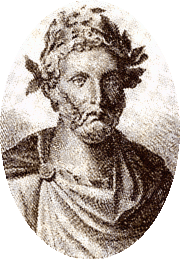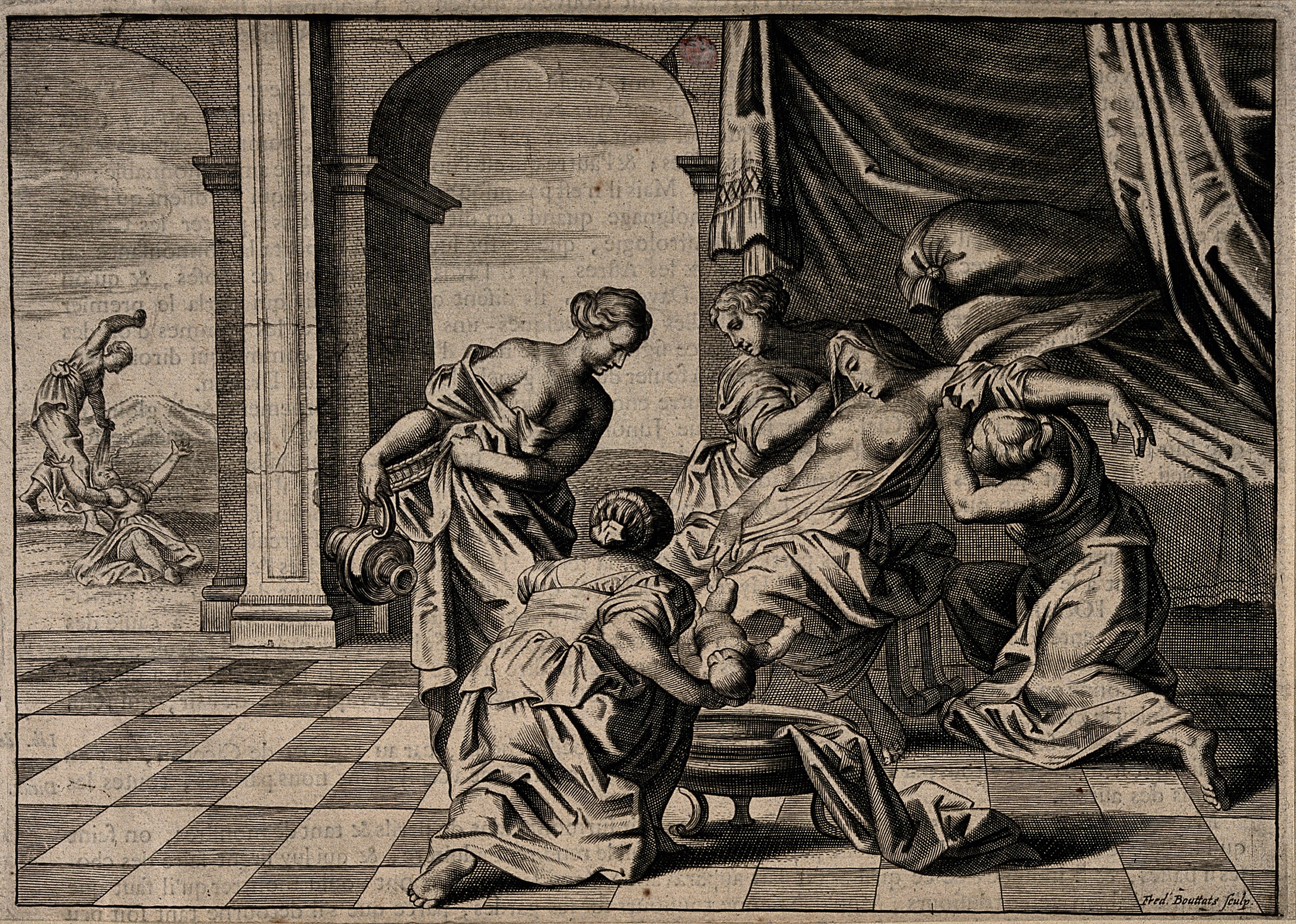[This page by Martin Swales]
Amphitryon. Ein Lustspiel nach Molière; Amphitryon. A Comedy after Molière (published 1807, first performed 1899)
Central to Amphitryon is the cardinal comic experience of confused identities. Jupiter and Merkur have taken on earthly form because Jupiter desires Alkmene, wife of the Theban general Amphitryon. The deception allows him to return home earlier than the real Amphitryon – and to make love to his devoted wife. Sosias, Amphitryon’s servant, finds himself in the first two scenes of the play confronted and overpowered by another version of himself (Merkur).The confusion and fury mounts throughout the play, until at the very end Jupiter reveals himself in his true shape. He and Merkur return to Olympus – but not before rewarding Alkmene and Amphitryon with the promise that they will have a son whose name will stand as the symbol of male power and greatness – Hercules. Kleist borrows the comic energies from his sources – Plautus and Molière, and time and again there are lines that draw the full humorous potential from the replicated and displaced identities that drive the play forward. In Act One, Scene 2 Sosias says to his double:
Nur habe die
Gefälligkeit für mich und sage mir,
Da ich Sosias nicht bin, wer bin ich?
Denn etwas, gibst du zu, muß ich doch sein. | Now please
Be so kind and tell me,
Since I am not Sosias, who am I?
You will admit that I must be something. |
And, towards the end of the play (in Act Three, Scene 10) Sosias creates two new words in order to express the confusion that baffles both his master and himself:
Und kurz, ich bin entsosiatisiert,
Wie man euch entamphitryonisiert. | And simply, I have been de-Sosiasized,
Just as you have been de-Amphitryonized. |
Yet the comic confusion – and here Kleist’s need to subvert the genre comes into play – constantly touches on profound, and profoundly hurtful, matters. After their night of love, Jupiter asks Alkmene whether the body in her arms was that of the husband or of the lover. She refuses to accept the distinction:
Nicht, daß es mir entschlüpft
In dieser heitern Nacht, wie, vor dem Gatten,
Oft der Geliebte aus sich zeichnen kann;
Doch da die Götter eines und das andre
In dir mir einigten, verzeih ich diesem
Von Herzen gern, was der vielleicht verbrach. | Not that it escaped me
In this happy night, how, from the husband
Often the lover can distinguish himself;
But since the gods united the one and the other
In you for me, I forgive this one with pleasure,
For what the other one perhaps committed. |
Behind this moment of disturbance and conciliation vibrates the whole question of sexuality in marriage, of licit and illicit desire, of whether the notion of conjugal rights diminishes the act of love into a duty rather than freely given emotional surrender. Moreover, the perception that sex has both a physical and a metaphysical dimension vibrates throughout the play – and comes to a head in Act Two, Scene 5. Alkmene says to Jupiter that, in order to pray to the divinity, she needs to invest him with human features:
Soll ich zur weissen Wand des Marmors beten?
Ich brauch Züge nun, um ihn zu denken. | Should I pray to a white marble wall?
I need features now, to think of him. |
Yet to her the love of an earthly man in marriage is the very foundation of her being. Jupiter, embracing her, asks her to choose between himself and Amphitryon. She acknowledges the profound bliss that she felt the night before and desperately hopes that that divine feeling was for her husband:
Wenn du, der Gott, mich hier umschlungen hieltest,
Und jetzo sich Amphitryon mir zeigte,
Ja – denn so traurig würd’ ich sein, und wünschen,
Daß er der Gott mir wäre, und daß du
Amphitryon mir bliebst, wie du es bist. | If you, the god, held me here in your arms,
And then Amphitryon appeared to me,
Yes – then I would be so sad, and wish,
That he were the God to me, and that you
Remained Amphitryon to me, just as you are. |
The desperate confusion of feeling, the complexity of different kinds of knowing (or are they the same kinds of knowing?) is at the heart of the play and gives it a powerful tragic undertow. Of course, at the end all is explained, everybody is forgiven and reconciled. No hard feelings, we might say. But there are hard feelings, the dark undertow will not go away – and it vibrates in the final utterance of the play, one of the shortest and most famous curtain lines in all German drama. In the midst of the general rejoicing, as the male world celebrates the promise of the birth of Hercules, the product of the night of love between Alkmene and Jupiter, she, the mother who will bear the child, says simply ‘ach’. However the line is played in the theatre – as a croak of despair or a scream of outrage – its force vibrates long after the play’s close.
Further Reading
Robert J. Andreach, ‘Overmyer’s Amphitryon: Adapting Kleist for a Contemporary Audience’, Papers on Language and Literature 36 (2000), 158-76
Susan E. Gustafson, ‘“Die allmähliche Verfertigung der Gedanken beim Reden”: The Linguistic Question in Kleist's Amphitryon’, Seminar 25:2 (1989), 104-26
Jeffrey L. Sammons, ‘Jupiterists and Alkmenists: Amphitryon as an Example of How Kleist’s Texts Read Interpreters’, in A Companion to the Works of Heinrich von Kleist, ed. by Bernd Fischer (Rochester, NY: Camden House, 2003), pp. 21-42
John Walker, ‘“Und was, wenn Offenbarung uns nicht wird”: Kleist’s Kantkrise and Theatrical Revelation in Amphitryon’, Oxford German Studies 22 (1993), 84-110
Andrew J. Webber, The Doppelgänger: Double Visions in German Literature (Oxford: Oxford University Press, 1996), Chapter 4: ‘Cases of Double Trouble in Kleist’, pp. 195-231


